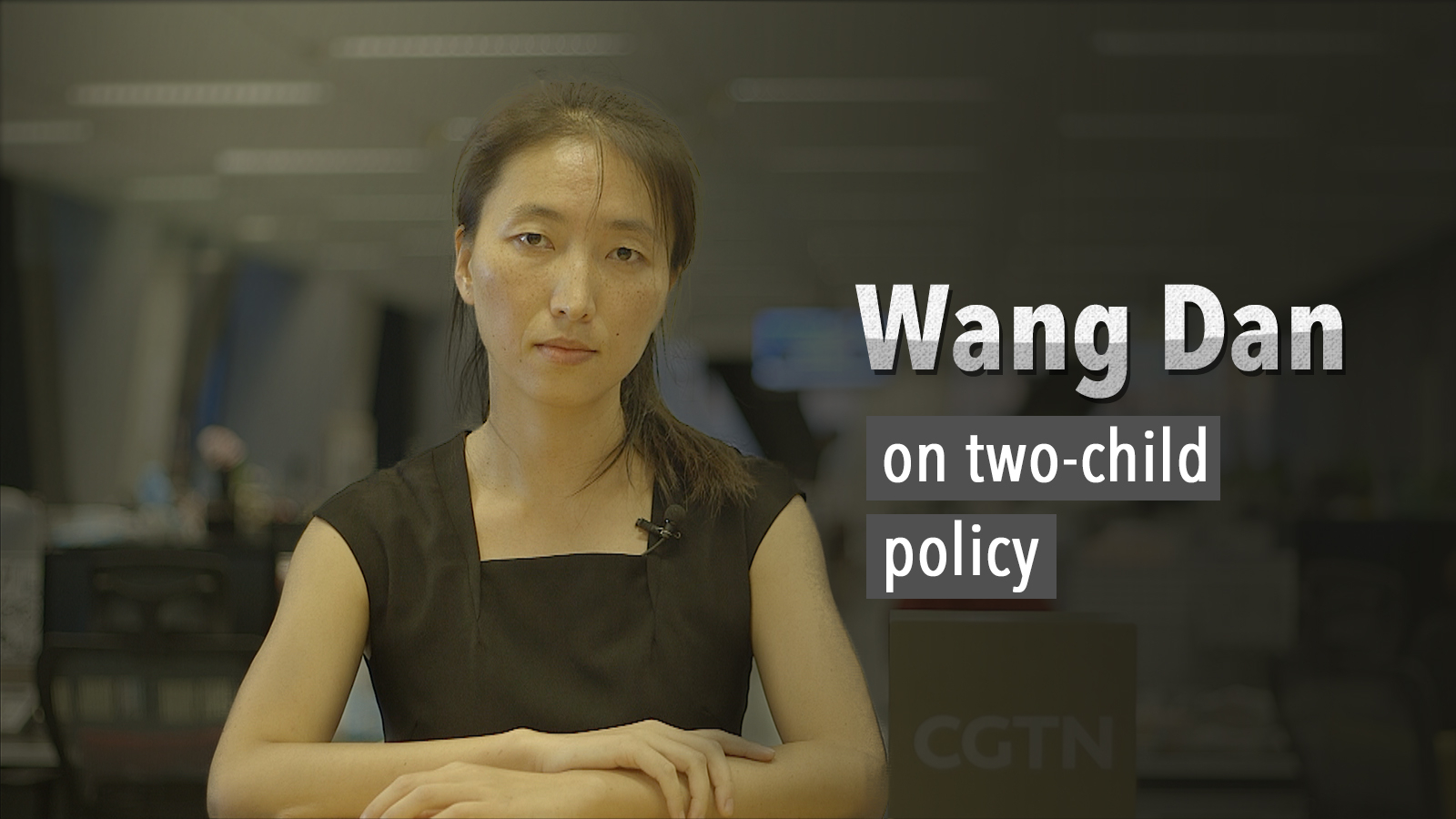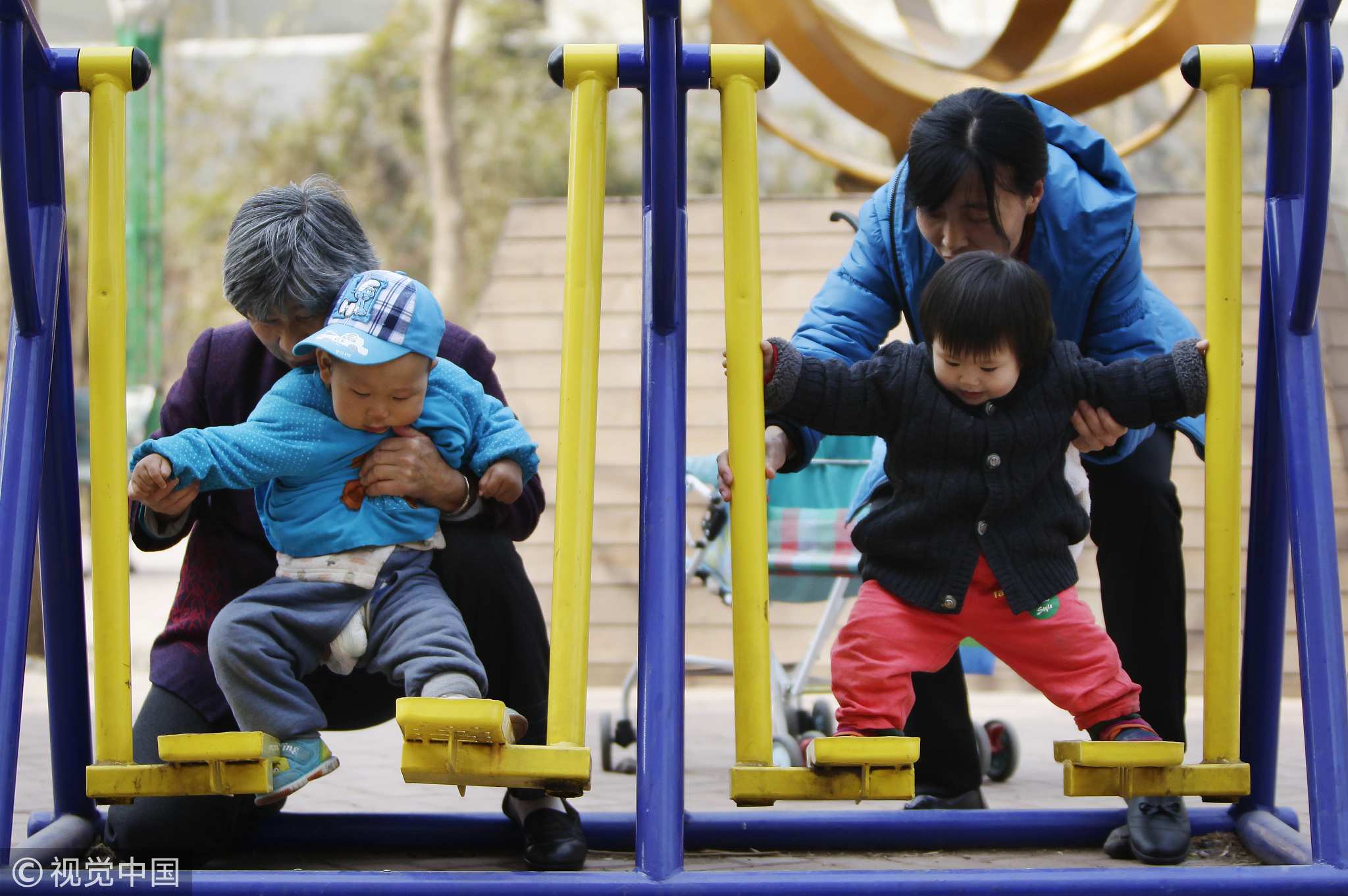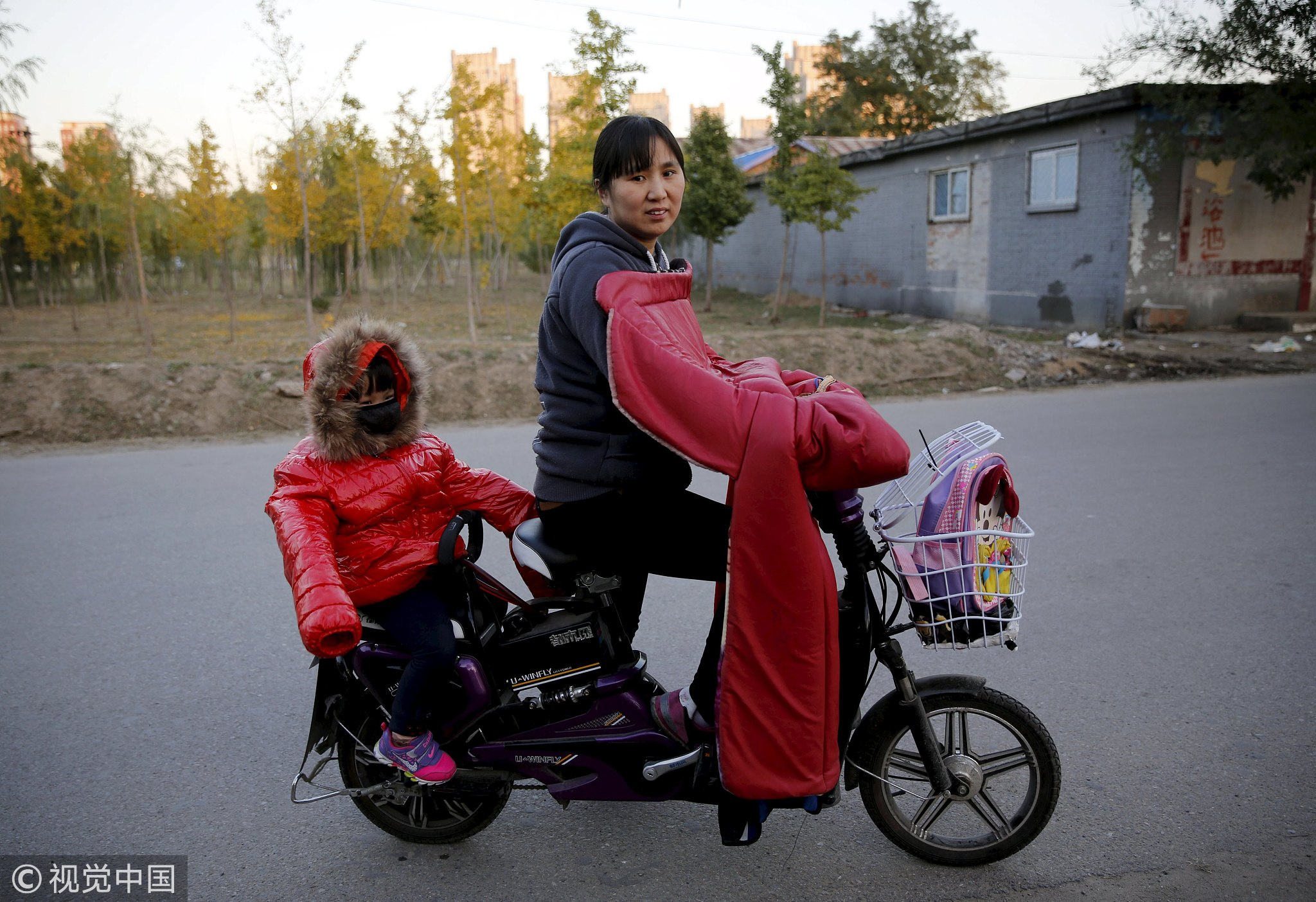
Opinions
09:39, 20-Oct-2018
Why do Chinese have a frail appetite for a second kid?
Updated
08:58, 23-Oct-2018
CGTN
02:06

China introduced the two-child policy in early 2016 in response to a skewed sex ratio and also to an aging society. Yet now, after over two years, the policy has seen tepid progress. Moreover, it has created new conundrums for Chinese women and young families, both materially and spiritually. In the coming years, Beijing may consider more effective policy measures to respond to its demographic travails.
Why do Chinese women of childbearing age have frail appetites for a second child? There have been voices calling for scrapping the 40-year-long family planning policy over the past months. Is that suggestion realistic in present-day China? What about the proposal of setting up a childbirth fund to cover the expenses of two-child families? CGTN's Wang Xiaonan invited Wang Dan (Wang), China analyst at The Economist Intelligence Unit, to share her views on these intractable issues.
CGTN: Few companies are willing to pay for more than one maternity leave, consequently making it harder for young women to find a stable job or get a promotion, putting their promising future in jeopardy. Is the two-child policy regressive for Chinese women?
Wang: To a big extent, yes. It is regressive for Chinese women. It's not that the two-child policy should be designed for women only. Actually, without compatible policies for Chinese men, it's very difficult for women to enjoy the relative welfare they can actually have from work. And also since living in cities is quite expensive, many women have to become housewives, which already results in lower bargaining power for them. Furthermore, certain groups of women do not have that high status at home, and to have a second kid will only make life harder for them.

Zhao Xingqiu poses with her husband and baby in front of a baby products shop in Beijing, China, October 30, 2015. Zhao, 27, an office worker, said she does not plan to have a second child. /VCG Photo
Zhao Xingqiu poses with her husband and baby in front of a baby products shop in Beijing, China, October 30, 2015. Zhao, 27, an office worker, said she does not plan to have a second child. /VCG Photo
CGTN: The two-child policy is also somewhat draconian for families, particularly those from the burgeoning middle class, who were contented with one child while believing in the benefits of the one-child policy. Now they have to mull over whether to have a second kid and whether they can afford a life with two children. For example, they have to spend more on housing, healthcare and education. What are the costs for a middle class family in having a second child?
Wang: Besides the obvious costs for education and healthcare, there's also an emotional toll and a sacrifice of personal life. For a woman in any country, she has to strike a balance between work and family. Taking care of a child in China is not that easy, and it's really difficult for a woman to single-handedly raise a child because of a lack of social support.
So it's going to be a difficult time for the middle class to make that decision. And a very important distinction between the middle class and the lower-income class is that in fact when you are in the middle class, you should be able to allocate more time for leisure, but to have a second child means you actually can't do that –all your leisure time should be spent on children.

April 3, 2013: Children and their caretakers at a community in Beijing, China. /VCG Photo
April 3, 2013: Children and their caretakers at a community in Beijing, China. /VCG Photo
CGTN: What suggestions do you have for changes to the existing two-child policy?
Wang: Right now, we are on a right course of scrapping the one-child policy and probably the two-child policy together. But without a policy that would compensate companies which hire women and a policy to compensate men or give maternity leaves for men, it will be difficult for women to have the courage to have a second child.
So I would say a policy for men is very important and also to maintain economic growth is fundamental – actually – for families to have this sort of planning.
For instance, if a woman has a three-month maternity leave, then her husband has to be required to have that maternity leave simultaneously and his company must compensate for him as well. This way, it's not just a one-sided burden on women as they may lose the opportunity to get promoted but for the entire family. This will be a better arrangement because men can also take responsibilities.

Lyu Hongli and her second daughter ride on a bicycle while posing at a migrant workers' village in Beijing, China, October 30, 2015. /VCG Photo
Lyu Hongli and her second daughter ride on a bicycle while posing at a migrant workers' village in Beijing, China, October 30, 2015. /VCG Photo
CGTN: Some experts have even proposed setting up a childbirth fund to cover the expenses of two-child families, which have gone viral online and elicited much criticism. What do you think of the proposal?
Wang: I can see the incentive of the policy because it wants to establish having two kids as a social responsibility. However, it's not an even burden for all. For people who decide not to have children or to have only one child, they are not happy to share this type of responsibility. A second child means more competition for their own children in school or in hospital.
My suggestion is that the government probably should leave this to the market. There can be some arrangements on the company level and there can be some NGOs that can take care of this, but a government policy like this can have very unintended consequences, just like what the one-child policy did before.
Reporter and editor: Wang Xiaonan
Videographer and creative director: Li Yunlong
Video editors: Wang Baozhu, Li Yunlong
(If you want to contribute and have special expertise, please contact us at opinions@cgtn.com.)

SITEMAP
Copyright © 2018 CGTN. Beijing ICP prepared NO.16065310-3
Copyright © 2018 CGTN. Beijing ICP prepared NO.16065310-3